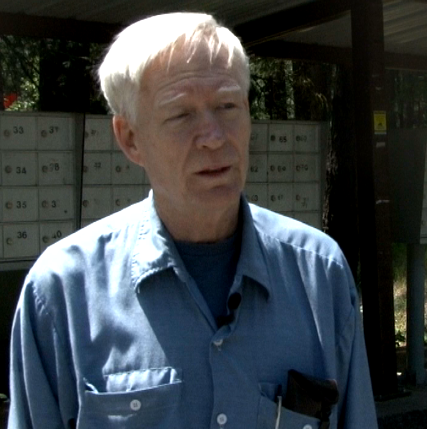Curb appeal, crime rate and a quality education. Those are the factors most people weigh when buying a home. But, a new investigation found that equation was now influenced by the drought and longer, more intense fire seasons.
Homeowners insurance, once a budget afterthought, was now top of mind for some people.
Residents in a small Placer County community said their premiums are "burning out of control," and insurance companies are canceling other policies altogether. They lived on the outskirts of Colfax in a heavily wooded subdivision named Alpine Meadows.
Neighbors Smell a Rat
One of the neighborhood's most outspoken homeowners said his rates have almost tripled, and he had strong feelings about the reasons rates are going up.
Colfax homeowner William Cunningham didn't mince words when it came to through-the-roof insurance costs.
He first saw his premiums start to climb two years ago when he got a startling letter from his insurance company Liberty Mutual.
"When I seen what I saw in the mail," Cunningham said, "I smelled crooks, people that didn't have no conscience, didn't care a darn about people who are on fixed incomes."
William already had a wife and son with serious and expensive medical needs.
Now, his homeowners insurance nearly tripled since 2013.
Cunningham's annual premium shot up from $735 in 2013 to over $1,600 last year.
This year Liberty Mutual said it wouldn't be renewing his policy. He had to find another insurer and now pays $1,900 dollars a year to a foreign company known for high premiums and exclusive clients. "Now I'm going through a company that we've all heard of, Lloyds of London. I have to go all the way to London to get insurance here?," Cunningham said.
It's not just Cunningham though, and it's not just this part of the state. The California Department of Insurance said people in fire-prone areas across the state were seeing higher premiums. Historically, the department said, drought conditions raise the risk of fire and in turn the force up premiums homeowners pay for insurance. Spokesperson Nancy Kincaid said, "Wildfire season used to just be three months a year. It's now 365, year round. This February we saw a big fire where 40 homes were lost."
New Risk Analysis May Help Drive Up Rates
Risk was one factor, but so was something called catastrophe modeling or "cat modeling." It's a computer generated map that shows insurance companies where disasters like wildfires or hurricanes will likely occur and the damage in dollars that each event might cause. Kincaid said the technology was now able to analyze risks in individual neighborhoods which meant people in surrounding neighborhoods were no longer paying for the risks of others.
But some Alpine Meadows subdivision homeowners said there hadn't been a major fire here in decades and there were two fire stations just five minutes away. They questioned whether the higher rates were based more on profits than true risks.
Jennifer Clark said she believed insurance companies were manipulating the risks and burning her and her neighbors for big bucks.
Clark paid $740 a year for insurance just a couple of years ago and now the price was $1,900 just like Cunningham's.
"It feels like it's never going to stop, either," Clark said
"They could raise it $1,000 next year and then the year after and before you know it you could be paying $5,000 a year. Who knows? There's no cap, Clark said.
Lowering Rates & Surviving Non-renewal Notices
The California Department of Insurance said it can't predict future rates, but it assured homeowners all rates must be justified through historical and predictive loss data. Insurance companies were taking a risk in fire prone areas, it said , and homeowners had to share in the costs.
Clark, Cunningham and some of their neighbors have tried to improve their properties to make them less risky. But walking around the forested subdivision, it wasn't not difficult to see that others have done little to protect themselves from wildfires. Many homes were built right up against trees. Underbrush was overgrown.
The Association of California Insurance Companies said many of its members will lower premiums or stop non-renewals if people took a few steps to better fireproof their properties.
It recommended clearing defensible spaces around structures. Cutting back trees and brush at least 30 feet from buildings created a buffer between flames and homes.
The ACIC also said replacing old windows with newer ones that are tempered will lower fire risk as well adding covers to rain gutters and replacing aging roofs with newer fire resistant materials.
Not all insurance companies will lower rates if customers make these improvements. The California Department of Insurance said you should shop around. They also said if your insurance companies send a non-renewal notice, to call them right away. Ask the company if it will keep your policy in tact if you make some of these risk reducing measures.


